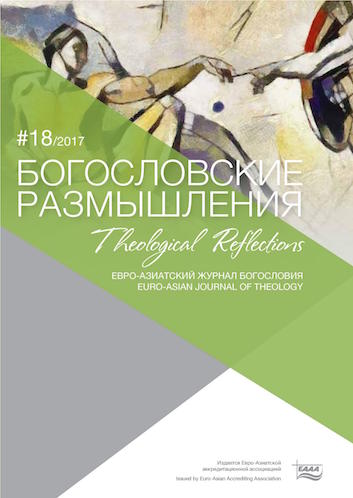The Reformation: A Very Short Introduction
DOI:
https://doi.org/10.29357/issn.2521-179X.2017.18.184Keywords:
Peter Marshall, The Reformation, The Middle Ages, Theology of the ReformationAbstract
A small, relatively recent, and well-written book by Peter Marshall belongs to the well-known Oxford series called “Very Short Introductions.” It is an informative and analytical introduction to the history, culture, politics, and theology of the Reformation that took place in sixteenth-century Europe. The Reformation is an academic research-based book that is nevertheless very accessible to a wide audience. It is part of the larger company of historical and cultural mini-handbooks such as, The Middle Ages: A Very Short Introduction by Miri Rubin (2014) and The Renaissance: A Very Short Introduction by Jerry Brotton (2006). The former volume precedes the discussion of the Reformation, and the latter complements and deepens it. The phenomenon of Reformations is surveyed and analyzed by Peter.
The Reformation: A Very Short Introduction. By Peter Marshall. New York, NY : Oxford University Press , 2009, xii + 153 pp.; ISBN 978–0–19–923131–7 (pbk.); 7.00 USD.*
* The review received on 6.12.2016; approved for publication on 20.12.2016.
References
- In the original article there is no list of used literature
Downloads
How to Cite
Issue
Section
License
Copyright (c) 2020 Rostislav TKACHENKO

This work is licensed under a Creative Commons Attribution-NonCommercial 4.0 International License.
All articles published in the Journal are distributed under a Creative Commons Attribution-NonCommercial 4.0 International License
By submitting an article for publication in Theological Reflections: Eastern European Journal of Theology the author grants the editors the right to publish the article and distribute it in electronic and print form.
The author reserves all copyrights and the right to use the materials of the article in whole or in part for educational purposes, to write his own dissertations, to prepare abstracts, conference reports, oral presentations, etc., as well as post electronic copies of articles (including the final electronic version downloaded from the journal’s official website) on non-commercial web-resources without the consent of the editorial board and founders.



